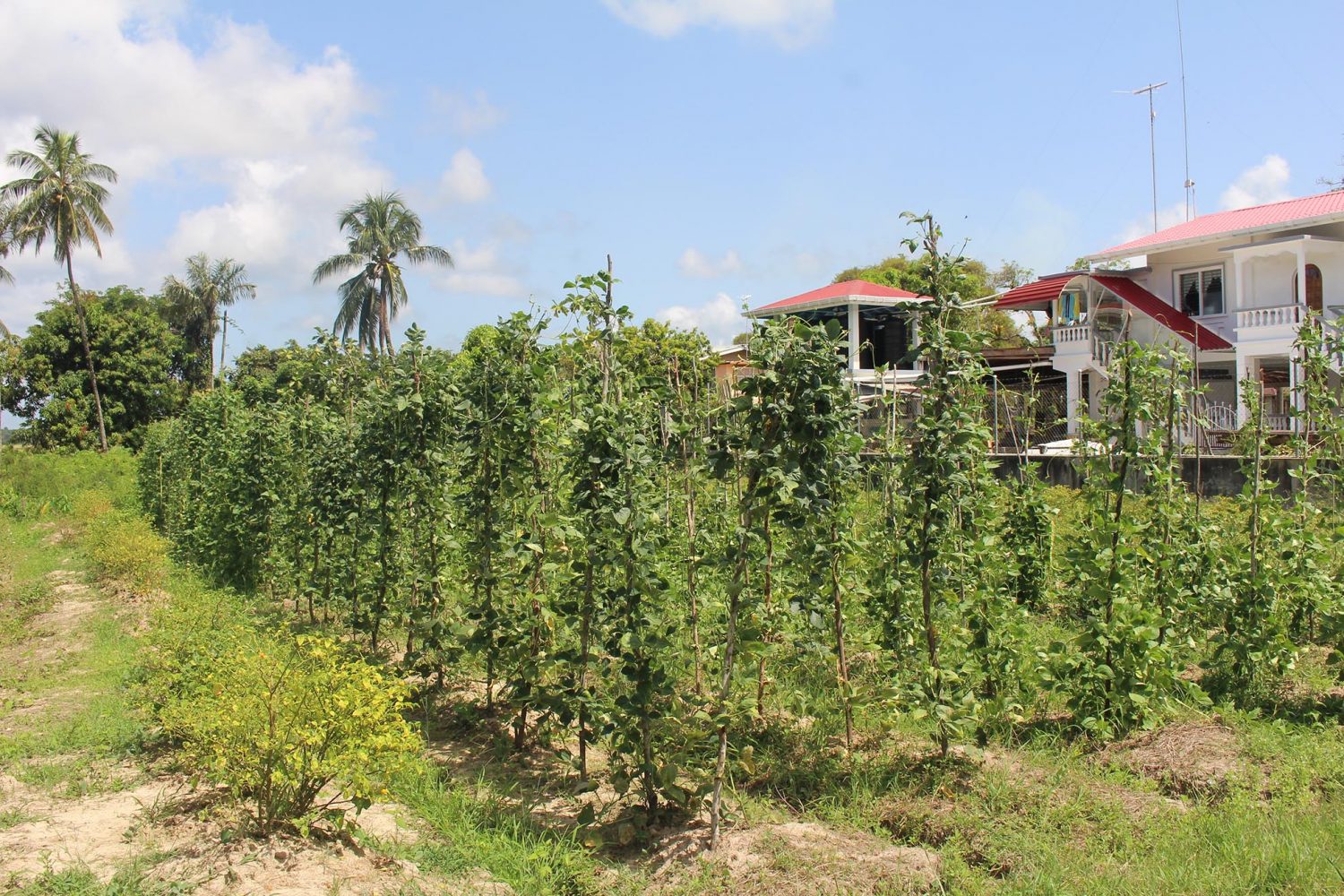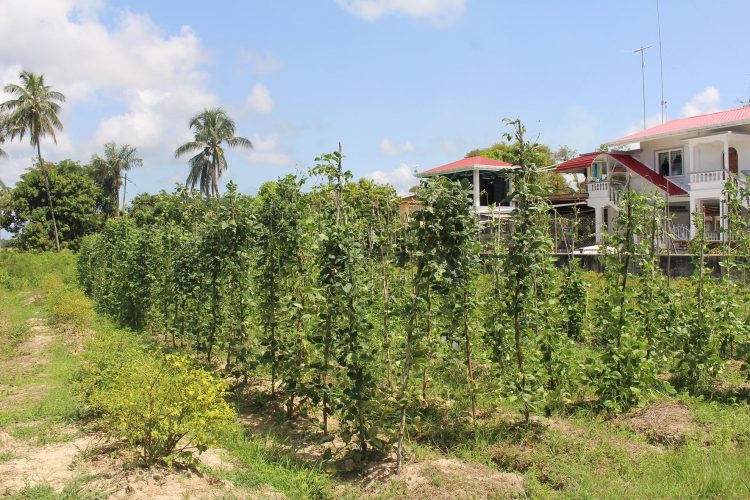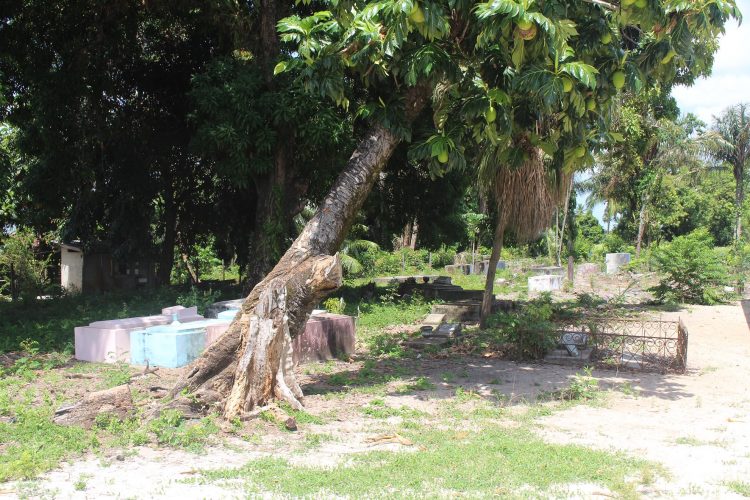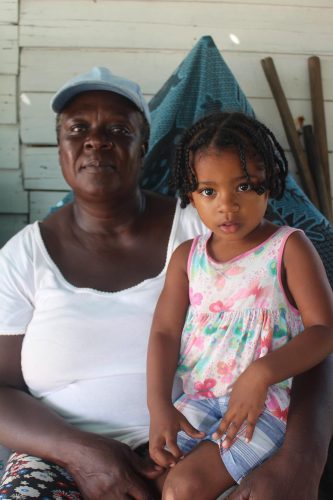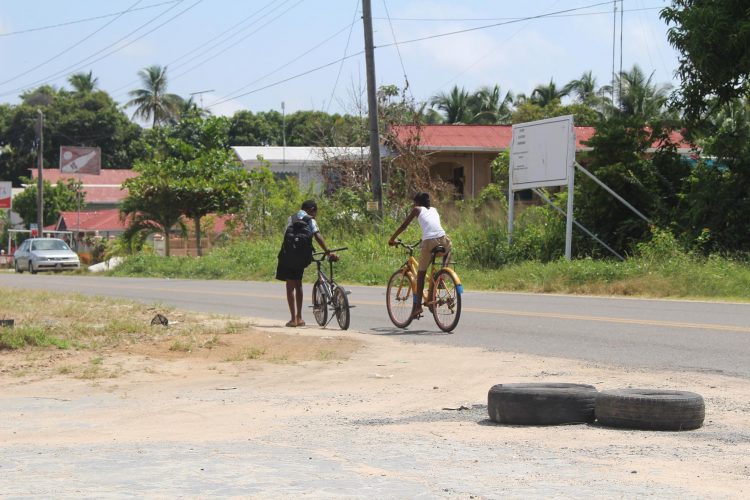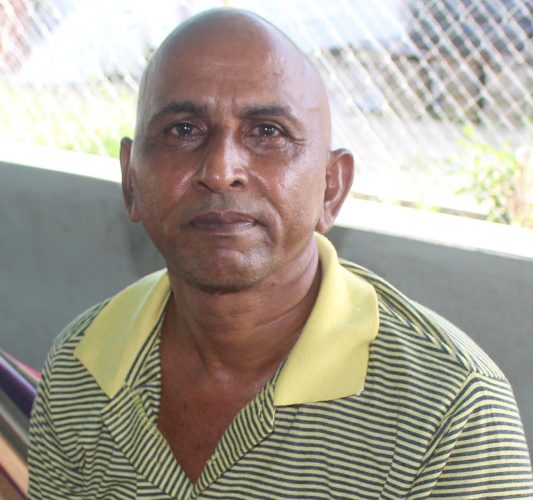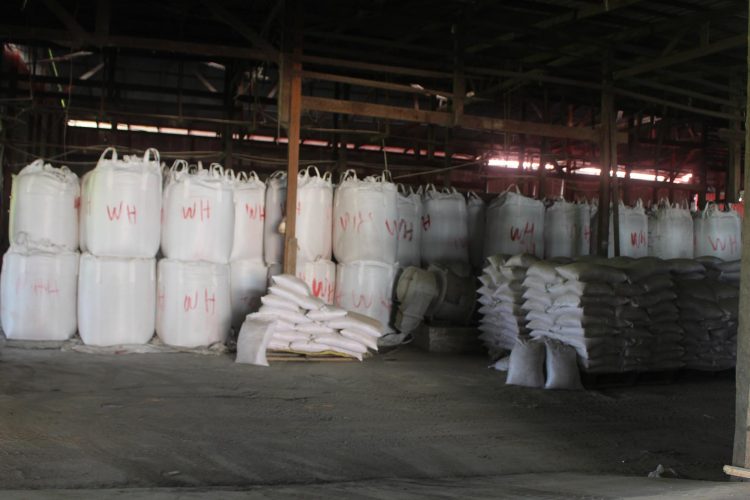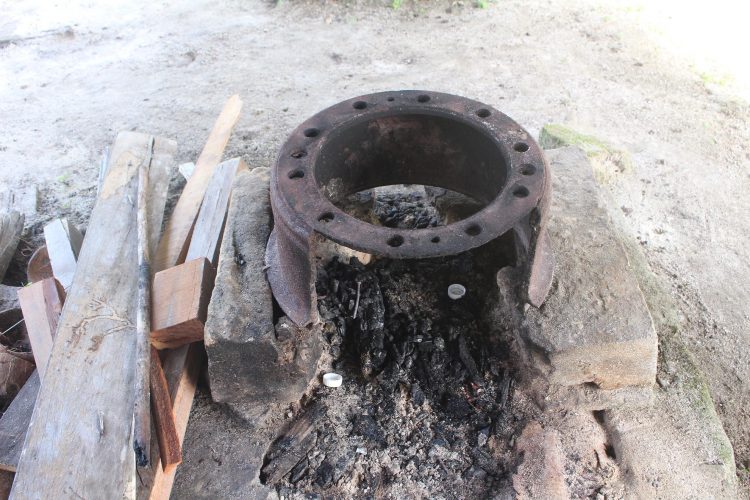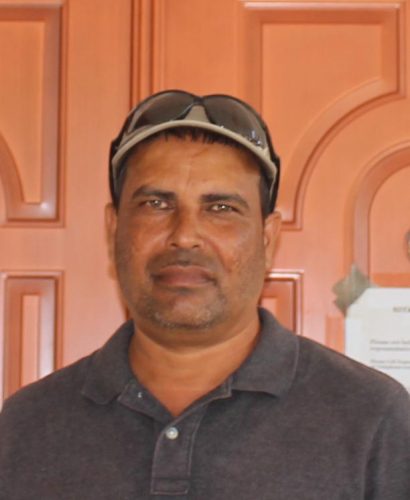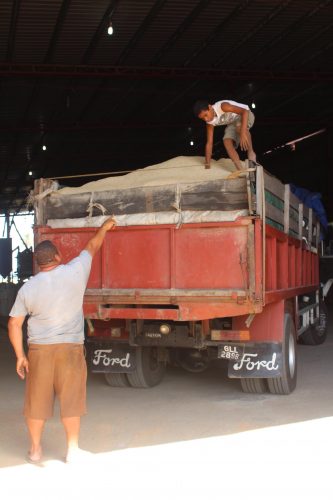Dryshore is a quiet little village in Essequibo, approximately four miles from the Supenaam jetty skirted by the villages of Warousi and Hibernia. It is home to an average population of 200 residents.
When the World Beyond Georgetown visited, workers at the Wazeer Hussein and Sons Rice Milling Complex could be seen busy at work. Not much else stirred in the still village except for vehicles driving along the Essequibo Coast Road that runs down the middle of the village.
At the first house, a relative who was with two children, explained that she had only recently moved to the neighbourhood. Her father-in-law, Harry Persaud, was enjoying his breakfast in the comfort of his hammock.
Harry, originally from Aurora, a few villages up, had moved to Dryshore with his wife and children at a time when the place was still mostly bush. There was a red loam road, he said, dotted with potholes.
His children were already attending Aurora Primary School and remained there as it was the closest to Dryshore, which has no schools. The closest nursery school is also at Aurora, while the closest secondary school is situated in Pamona, three miles away.
Once his family was settled, Harry planted 75 rods (three quarters of an acre) with plantain, bora, ochro and other vegetables that he sold wholesale from his residence to vendors. At other times, he travelled to the market at Suddie to sell his produce. Later on, he sold the farm and sought other jobs. He is currently employed at the Guyoil Gas Station as a security guard and cycles to and from work.
This village as is the norm on the coast has a peaceful atmosphere and Harry boasted of its crime-free nature. Pointing to things lying around his yard, he said they would remain there night after night and not a soul would trouble them. His daughter-in-law sitting nearby mentioned that at one point in time this was not so as things had gone missing in the past, but that was a long time ago. Today they go to bed at night and leave their windows open letting the breeze in and sometimes even the door is left open.
The villagers have the conveniences of electricity, potable water and mobile shops that pass through the village with groceries, fruits and vegetables, water, cooking gas, and meat and fish. However, the Persaud family would like to see telephone service, as is available in some of the villages along the coast. Having no street lights is also an inconvenience.
The Persauds are also affected by dust from the nearby mill at times, but they said they have accepted that some things cannot be avoided. They have found ways to deal with the dust like putting cloths over their black tanks to filter the rainwater they catch.
Next door, Denise Wolfe, a police officer of Aurora Police Station was busy getting her morning chores done.
The 52-year-old woman, who was born at the Suddie Hospital, grew up in Dryshore in a home where her father and mother spent their days working on the farm, planting ground provision, red beans, cash crops and fruits. She has followed suit with a kitchen garden of her own, however, during this visit there was no garden. She explained that since the village is positioned at a lower level than the main road, whenever it rains, the water runs off into the surrounding yards so it’s best to plant during the dry season, a job she’s already prepared for. Though there is an irrigation canal behind her yard, but she said that it does not help with the flooding much as it is already filled with water coming from the backlands.
Asked what propelled her into joining the Guyana Police Force, Denise said that drilling and discipline had always been part of her life ever since primary school (Aurora Church of Scotland which is now Aurora Primary) when it was required that each child join the Guyana National Service. By the time she was 21 and with a son, she joined the Guyana People’s Militia. While there she learnt weapon and jungle techniques. She eventually moved up to the rank of full corporal. Later, she was among the first batch in the country to train as neighbourhood police. Wolfe has been with the police for 11 years, six months.
Going back to when she was a girl, Wolfe reminisced: “We didn’t have fences then and we played in nearby yards, all kind of games: Chor [a game similar to hide and seek], hopscotch and gypsy in the moonlight. We even played together in the rain and swim in the canal at the back. Children these days have no time for that; they too busy watching the television or on the internet. It isn’t such a good idea anymore to have boys and girls play together. They see too much [lawlessness] on the television.”
Speaking of her job as a police officer, she stressed that though there are no reports of robberies, she would often get complaints of domestic violence, but rarely from residents in Dryshore. According to Wolfe although she supports women being a woman herself and is very much against domestic violence, she has heard of cases where men are the victims of this kind of abuse but never come forward to make reports for the fear of embarrassment. She recalled an incident where a man reported domestic violence, but at her behest after his spouse who showed up first to make a report but neglected to mention that she was the one who started the abuse. She is calling on men who are victims of this kind of abuse to come forward. Noting that there have been instances of male victims being ridiculed by police officers over this type of abuse, Wolfe said she does not stand for this and would never stand by and see her colleagues behave in this manner either.
Wolfe said that as a police officer she would like to see measures put in place for the police in terms of better wages as the cost of living is high. To help offset her personal expenses, she said, she hosts barbecues once a month.
She mentioned also that at one time she was on the Suddie Hospital Board and on many occasions the hospital did not have the necessary medication forcing persons to have to purchase from pharmacies. On another note, cases that she believed should have been handled at the hospital were often referred to the Georgetown Public Hospital and because there was no boat, patients had to wait for the ferry; in emergency cases, patients have had to take a speed boat which was expensive.
Wolfe also referred to the high unemployment rate on the Essequibo Coast. Too many teenagers, she said, after writing the Caribbean Secondary Education Certificate examinations, have to leave the coast in search of jobs. Husbands and fathers are often forced to do the same leaving their families for months at a time.
But for Wolfe, Dryshore is close to her heart because of her love for the people, who she boasts, live in harmony.
“I moved here twenty years ago,” rice mill owner Wazeer Hussein said. “When I came here, this place was sheer awara trees and bush. It took me a year to clear 4.4 acres of land, fill it and finish the construction of the mill. I started with a half-tonne mill [the amount of rice milled per hour]. It took me 18 years to move from a half-tonne mill to a ten-tonne mill.” He later bought the Kayman Sankar Rice Mill in Hampton Court also.
Hussein was praised by villagers for his support, some 20 of his 60-member workforce are Dryshore residents. The mill in Hampton Court has an average of some 40 workers.
Hussein, who was originally from Aurora, had previously worked as a furniture maker.
“Years ago, my parents planted rice. I was ten when I started going with them to the backdam,” he recalled. His job then was to pick up unwanted stuff from the backdam and soak the paddy. The man said that although they were poor they were never in want. They had learnt to work hard for the things they wanted and were always busy planting rice and rearing poultry and dairy animals. They bought whatever they needed on credit and paid a little on it every week which in most cases went longer than a crop to pay off.
But life was not all work; sometimes he would go in search of birds with his slingshot and afterwards would cook it in a butter saucepan adding plantain, banana, pumpkin and whatever else he found to his pot.
Hussein also mentioned that after writing Common Entrance he never lost touch with his classmates – all 54 of them and talks with them from time to time.
Talking shop, he said, “The rice industry is very bad. The government doesn’t want to invest – even the previous government. GRDB [Guyana Rice Development Board] tax the millers US$10 a tonne whether we make a profit or a loss.”
Currently, he pays farmers between $2,000 and $2,300 for a bag of paddy. At present, he exports to Venezuela, Panama, Jamaica, Trinidad and Europe. The broken rice is sold to Bounty Farm to make chicken feed.
He strongly disagrees with that there is a high unemployment rate, insisting that there is work for people living in Essequibo. “I may be the owner of a rice mill but I know to do anything. I can throw a cast net, I can plant, or drive a truck. People want special work. I’m speaking for Essequibo… If it got persons here without a job, it’s because they cause it on themselves.”
Speaking about his village he said, “People live in harmony here regardless of race. Dryshore is a mixed village; we have Afro and Indo Guyanese and a small percentage of Amerindians. I would like to see more people come to Dryshore to live, Essequibo on the whole. If you want to go to heaven before you die, come to Essequibo.”
